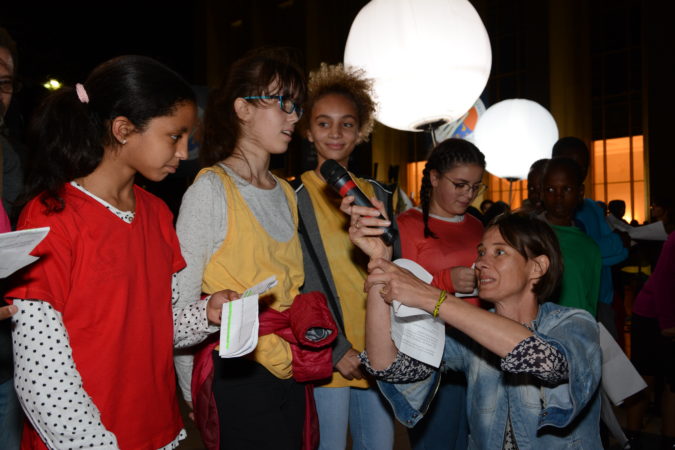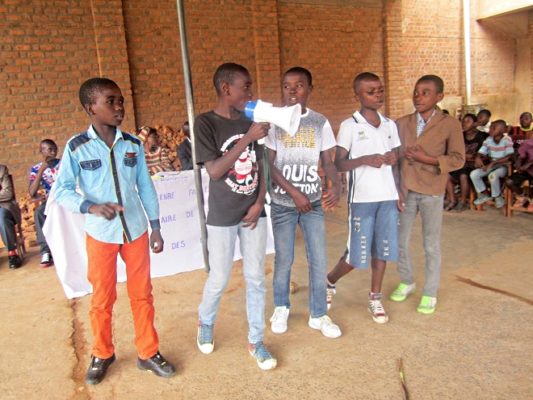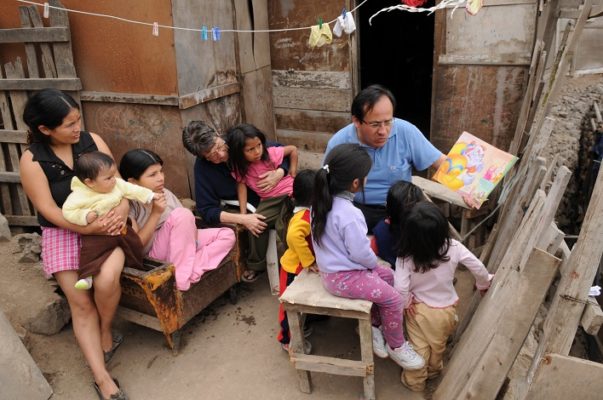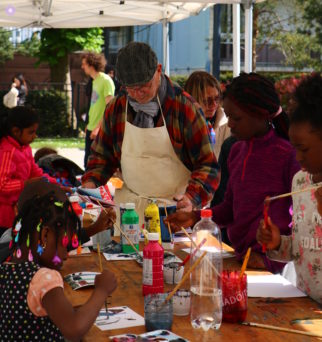Universal Children’s Day

“I would like houses to be cheaper for people in poverty because there are so many bugs.”
So said a 10-year-old girl who was very proud that a friend was reading her statement during a recent World Day for Overcoming Poverty celebration in Paris. She and her family live in a shelter. Her concerns as a little girl far exceed what they should be at her age.
There are many children like this little girl struggling to escape the problems of their daily lives. Each day they show exceptional courage by going to school and helping their families. But how can they have optimism about the future when they are weighted down by so many burdens?
On November 20, 1959 the UN General Assembly adopted the Declaration of the Rights of the Child. Then on November 20, 1989 it adopted the Convention on the Rights of the Child. Universal Children’s Day focuses on these documents in order to encourage adults to make it a priority to improve children’s lives and to do everything possible to offer them the future to which they are entitled.
Children Have Something to Say
But this is impossible when people do not listen to children in order to learn what they want. Increasingly children are growing up in a world where society thinks for them and where they have to fit into a certain mold of success. Those who do not comply are discarded. This two-tier world exists in communities and in schools, but also at a national level. However, when children speak for themselves and adults listen to them, their words have great wisdom and a real ambition for our world. Children have important things to say and they want to be taken seriously. Children invite us to come together in support of that which makes us human. “We want everyone to have joy”, they say. “We want people to be happy.”
ATD Fourth World works with children and their families in more than 30 countries to ensure that children’s rights are respected, that they can grow up in a dignified environment and study as they want to, that they have access to culture and a say in political decisions that concern them.
Actions That Help Children Transform Their Community
ATD’s Street Library teams reach children where they live, often in the most isolated neighbourhoods, offering blanket-sized areas of peace and serenity surrounded by books. Here children find pleasure in reading and learning. At a Street Library it’s not results that count but the experience, the bonds and friendships that are created, the beautiful stories and images that will stay with them as fond memories.
In Bukavu (Democratic Republic of Congo), children and young people from different Tapori groups regularly meet, pool their resources and work on projects together – like helping people in poverty repair their damaged homes. By example these children and young people encourage neighbours and others to come and help. This motivates others to help those around them in need.
Tapori, ATD’s children’s network, builds bonds of friendship between children from all walks of life all over the world. Children tell each other what their life is like, answer questions together, and find solutions to situations of injustice.
Every summer, ATD organizes Festivals of Learning. These gatherings of cultural and creative street workshops encourage neighbours to come together and create community. The Festivals include individuals, associations, local governments, members of ATD and other stakeholders. Everyone is invited to share their skills and knowledge with others. At Festivals of Learning it is children who bring the party to life. They ring doorbells, hand out invitations, and paint banners. Their excitement and laughter brings a cheerful positive atmosphere to the streets. “Everyone was talking together”, said a child in Rennes, France. “Everyone was laughing together.”
Children are developing the world of tomorrow. But they do it with what they see and feel from adults. What do we choose to show them and make them feel? Will we continue to arm children to survive in a world of inequality, individualism, violence, and fear? Or will we help children to express their natural inclination towards generosity, cooperation, sharing, joy, curiosity, beauty and concern for life? What sort of place do we want the world of tomorrow to become?




